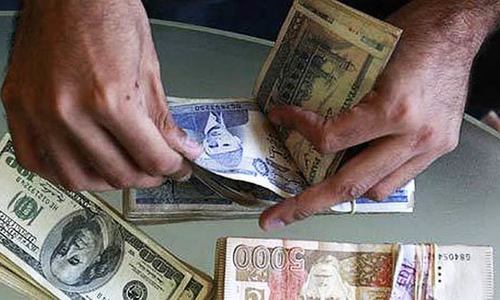MOST emerging markets suffer from financial exclusion. Pakistan is no exception. In a country of 220 million people, we only have 10m active loan customers. Commercial banks lend to less than 2m people. This appalling situation does not end. For a customer new to the industry, they usually take one month to provide a credit card or a personal loan.
The potential market for consumer credit — nano (under Rs5,000) — is estimated to be 50m. The irony is that our commercial banks could surpass this number in under five years, but the curse of risk-free investments (Treasury Bills and Pakistan Investment Bonds) with a lack of vision by both the board and management of banks and regulations preclude them by doing so.
Digital lending refers to using the past data of existing customers to predict the credit behaviour of new customers using artificial intelligence. Three main steps by our industry would allow us to materially change the number of active loan customers.
Commercial banks have more than 20 years of performance data on their consumer loan customers. A basic algorithm can identify the behaviour of good and bad customers. There are also about 40m payments cards in the industry. All the banks have to do is to use the unique identifier available i.e. the Computerised National Identity Card number and add the bank account transaction history to the credit history. Most banks with a consumer loan portfolio should be able to come with an underwriting algorithm with above 95 per cent accuracy.
We have the demand and the technology to increase consumer loans to 10m and nano (under Rs5,000) loans to another 40m customers
To improve the customer experience, banks should equip their sales force with tablets containing the loan application which is connected to the credit bureaus and National Database & Registration Authority (Nadra). Imagine the customer experience. As soon as the application is completed, the algorithm takes less than 5 seconds to give a decision. With the online real-time response from the credit bureau and Nadra, an in-principle decision can be made under 10 minutes as opposed to a month.
The commercial bank industry could claim that they do not have the required expertise to create the algorithms. Many central banks have solved this problem by establishing open banking regulations. The thesis is that the data of individual customers that resides primarily with commercial banks belongs to the individual customers and they can use it as they see fit. The bank is the custodian of the data, not the owner.
In many countries, central banks have created regulations which enable the customers to share their personal data through intermediary entities regulated by the central bank in a predefined format to a fintech of their choice. Fintechs have created this expertise in Pakistan. Imagine a customer applying for a personal loan to a fintech. The fintech articulates the customer data it requires from the customer’s bank. The customer instructs the State Bank licensed intermediary to import the customer’s data and provide it to the fintech, all under 30 minutes. For those fintechs which have the expertise but either do not have the capital or the lending license, the possibility for partnering with a commercial bank would be the preferred route.
Nano loans are usually under Rs5,000, (starter loans are typically under Rs1,000 and provided for 60 days). Providers of nano loans do not require salary slips or utility bills. With the customer’s consent, they use the existing data in the customer’s smartphone to make a credit decision using artificial intelligence. If the smartphone data can be augmented with transactional data of a mobile wallet and GSM (global system of mobile phone) data, the default rate drops drastically and so does the interest rate.
Nano loan providers usually do not take more than 10 minutes to provide credit or cash to the customer. After the commercial bank industry, the industry which has the most data points on individual customers is the telecommunications industry. Three of the telcos also own microfinance banks with branchless banking licenses. Therefore these entities have both GSM as well as mobile wallet transaction. Unfortunately, this data currently is only available to the telcos and their captive banks.
As argued earlier, this data belongs to the individual customer and the telco or bank is only the custodian of this data. Like the State Bank, the Pakistan Telecommunication Authority should come up with regulations where customer GSM data on the request of the customer should be made available to a fintech of the customer’s choice. In this manner, the customer would have the choice to decide which provider it gets a loan from as opposed to the current position.
We have the demand and the technology to increase consumer loans to 10m and nano loans to another 40m customers. What is required are regulations, collaboration and the desire to service customers as opposed to a singular bottom-line focus.
The writer is a technology entrepreneur
Published in Dawn, The Business and Finance Weekly, September 28th, 2020













































